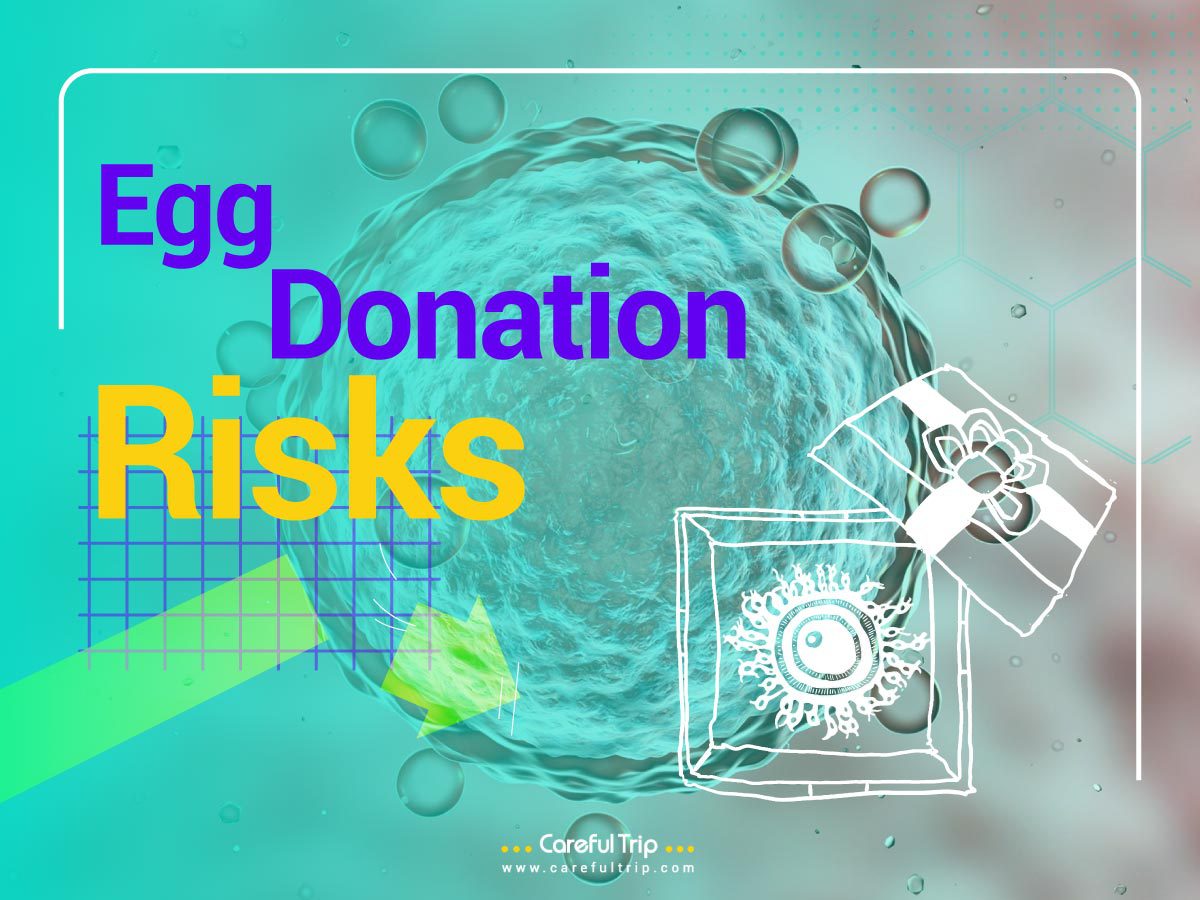
Introduction
Egg donation has emerged as a beacon for countless individuals and couples on their path to parenthood. However, as with all medical procedures, it comes with its set of challenges. Understanding egg donation risks is vital for both donors and recipients. This article delves deep into the potential risks associated with egg donation, offering insights drawn from recent findings and expert opinions. From the physical implications to the emotional ramifications, we explore every facet to provide a comprehensive view. As we navigate through the complexities, you’ll find an in-depth understanding of what to anticipate and how to mitigate potential challenges.
Physical Risks of Egg Donation
Egg donation, though a remarkable procedure aiding countless families, entails certain physical risks donors should be aware of. The procedure starts with fertility drugs to stimulate multiple egg production, potentially leading to Ovarian Hyperstimulation Syndrome (OHSS). OHSS’s symptoms range from mild bloating to severe discomfort, with extreme cases requiring medical intervention. The egg retrieval process, although minimally invasive, can present surgical risks like bleeding, infections, or accidental damage to nearby organs. Furthermore, some donors might experience adverse reactions to anesthesia. The physical aftermath might also include pelvic discomfort, spotting, or mood swings due to hormonal fluctuations. Though many women navigate the donation process with minimal complications, understanding these potential egg donation risks is crucial. Donors are encouraged to maintain open communication with their medical teams, ensuring that any concerns or symptoms are promptly addressed.
For more information, read:
Ovarian Hyperstimulation Syndrome (OHSS)
One of the most discussed egg donation risks is Ovarian Hyperstimulation Syndrome (OHSS). It arises when the ovaries respond excessively to fertility drugs, leading to swelling and pain. Mild symptoms may include bloating and discomfort, but severe cases can manifest as rapid weight gain and breathing difficulties. Dr. Jane Smith, a renowned fertility expert, mentions, “OHSS is manageable in most cases, but close monitoring during the donation process is crucial.”
Surgical Risks
Egg retrieval, though minimally invasive, carries surgical risks like bleeding, infection, or damage to surrounding organs. Personal accounts from donors emphasize the importance of choosing a reputable clinic with experienced surgeons to minimize these risks. As donor Emily Harris shares, “I experienced minor discomfort post-procedure, but the clinic’s attentive care ensured a smooth recovery.”
Emotional and Psychological Risks
Beyond the tangible physical challenges of egg donation, donors often confront a myriad of emotional and psychological hurdles. Donating genetic material can usher in complex feelings, ranging from pride in aiding a family to anxieties about genetic offspring they might never know. Some donors grapple with potential attachment, pondering the whereabouts and well-being of the biological child born from their donation. Others might experience moments of regret, second-guessing their decision. The societal perception of egg donation and potential judgment from peers or family can also weigh heavily on a donor’s psyche. While many navigate these emotions successfully with time, seeking support in the form of therapy or counseling can be invaluable. It’s imperative to acknowledge the depth and legitimacy of these egg donation risks, understanding that emotional well-being is as crucial as physical health in this profound journey.
Attachment and Loss
Many donors grapple with feelings of attachment or loss post-donation. The thought of having a biological child elsewhere can be emotionally challenging. Therapist Laura Jennings notes, “It’s essential to process these feelings with professional guidance, ensuring emotional well-being.”
For more information, read:
Potential Regret
Regret is among the potential egg donation risks. Some donors, upon reflection, might wish they had made different choices. Support groups and counseling can aid in navigating such emotions, providing a safe space for expression and understanding.
Long-term Risks
While egg donation has been practiced for decades, understanding its long-term implications is still an evolving area of research. Some concerns arise regarding the potential impact of repeated hormonal stimulation on a donor’s future fertility. While current studies predominantly indicate no significant detrimental effects, anecdotal accounts suggest potential challenges in personal fertility post-donation. Additionally, there’s uncertainty about the long-term health consequences, including the risk of ovarian cancer, though definitive links remain elusive. Another aspect to consider is the potential future emotional response when thinking of biological children raised elsewhere. As the years pass, donors might experience changing sentiments or curiosity. It’s paramount that donors remain informed and updated about emerging research on egg donation risks. Regular medical check-ups, staying connected with the donation community, and ongoing emotional self-assessment are recommended to navigate any long-term uncertainties and implications.
Fertility Implications
There’s an ongoing debate regarding the long-term egg donation risks on a donor’s fertility. While current studies indicate no significant impact, some anecdotal accounts suggest otherwise. Regular health check-ups post-donation are recommended for early detection of any potential issues.
Unknown Health Risks
As egg donation is relatively recent, some long-term risks remain unknown. Continued research and donor follow-ups can provide clearer insights in the future, emphasizing the importance of informed consent.
For more information, read:
Summary
Navigating the world of egg donation requires a keen understanding of the associated risks. While the procedure has brought joy to countless families, donors and recipients alike need to be well informed. Physical risks, like OHSS and surgical complications, are tangible and can be monitored. Yet, the emotional and psychological egg donation risks, such as feelings of loss or regret, require careful consideration and support. The long-term implications, while not fully understood, highlight the need for ongoing research and monitoring. Donor stories, expert insights, and current data converge on one clear message: knowledge is power. As we gain more clarity on egg donation risks, the journey becomes safer and more transparent for all parties involved.

